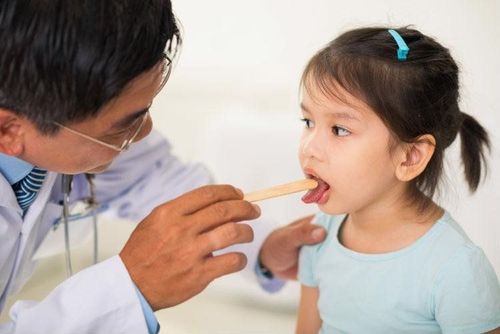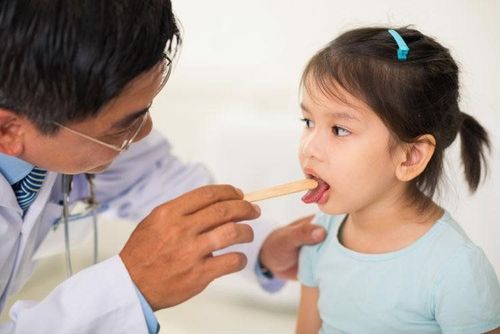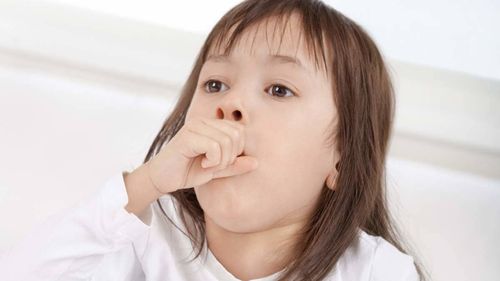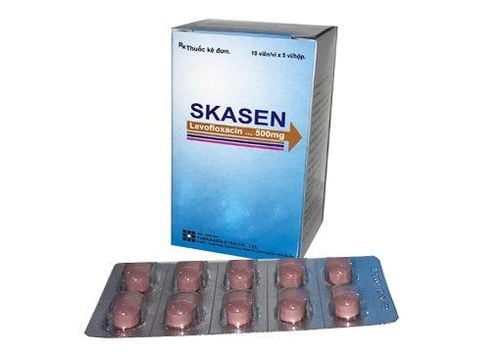This is an automatically translated article.
The article was expertly consulted by BSCK I Nguyen Hong Phuc - Emergency Department, Vinmec Phu Quoc International General Hospital.Acute tonsillitis is a congestive inflammation of the palatine tonsils and is common in school age between 5-15 years old, due to many causes. So what are the causes of the disease, the signs to recognize and how to treat tonsillitis?
1. Causes and favorable factors for acute tonsillitis
Causes of tonsillitis include:
Bacteria: Group A beta-hemolytic streptococcus, haemophilus influenzae, streptococci, spirochetes... Viruses: Influenza, measles, pertussis... Predisposing factors
Sudden weather changes. Exposure to a polluted environment, a lot of dust, low living conditions and poor hygiene. Due to the poor resistance of the body, due to the prone body to allergies. There are infections that are not thoroughly treated in the throat and mouth such as: tooth decay, gingivitis, VA, rhinosinusitis. The structure of the tonsils has many crevices and cavities where bacteria reside, multiply and develop. All ages can get tonsillitis, but acute tonsillitis is more common in both children and adolescents between the ages of 5 and 15.
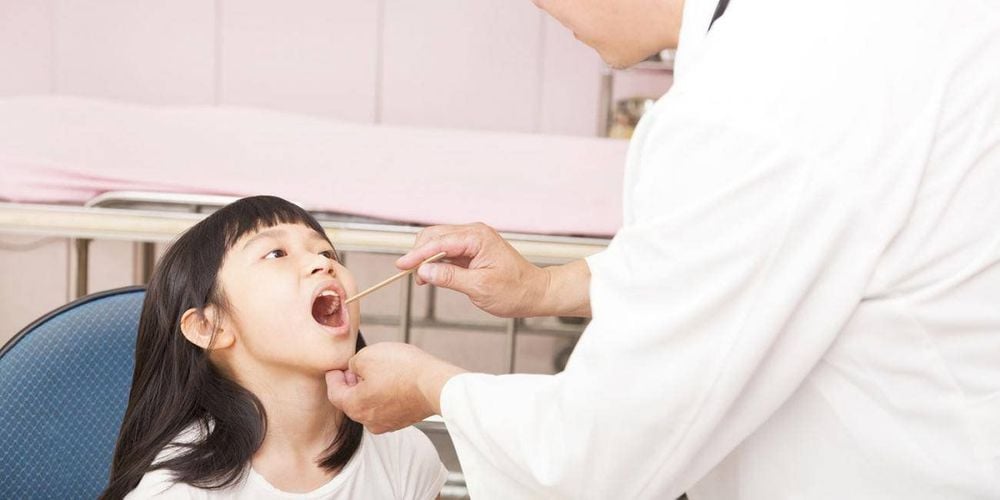
2. Signs of acute tonsillitis
Usually begins suddenly with signs of chills and then a fever of 38 to 39 degrees Celsius. Fatigue, headache, poor appetite. Urine is less and dark, bowel is often constipated. There is a feeling of dryness, burning, heat in the throat. Especially the lateral wall of the pharynx is the location of the palatine tonsils. Then a sore throat, possibly a sharp pain in the ear, increases when swallowing and coughing. Often accompanied by rhinitis in children with runny nose, children may wheeze, snore, and speak in a nasal voice. If the inflammation spreads down the larynx, the trachea causes a cough with phlegm, pain, and a hoarse voice change.
3. Treatment of acute tonsillitis
3.1. The principles of treatment
For acute tonsillitis, it is mainly symptomatic treatment, improving the condition and only using antibiotics when an infection is suspected or threatened with complications.
3.2. Specific treatment
Rest, eat easily digestible liquid, drink a lot of water. Pain relief, fever reduction when fever is over 38.5 degrees Celsius: Paracetamol. Drink at least 4-6 hours apart. Antibiotics: in case of infection use β-lactam group, if allergic, use macrolide group. Drop your nose with a mild antiseptic. Gargle with warm alkaline solutions: sodium bicarbonate, sodium borate... (half a teaspoon in a glass of warm water). Improve health: trace factors, vitamins, calcium... >>> Guidelines for child care after tonsillectomy
4. What complications does tonsillitis cause?
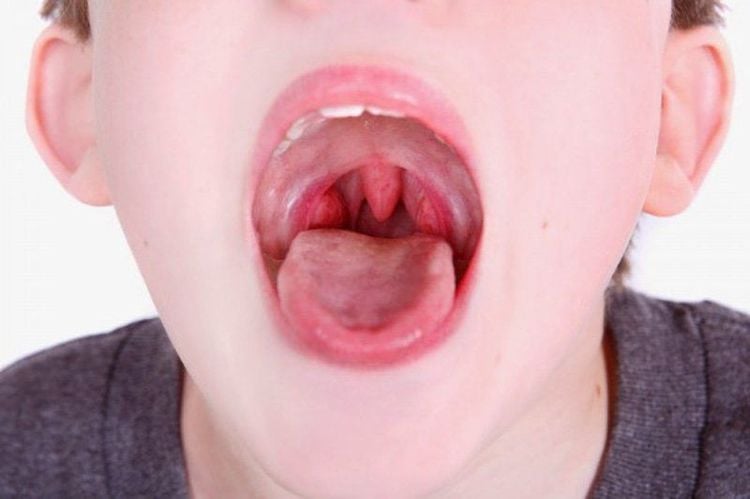
Tonsillitis, if not treated properly and promptly, can affect the patient's quality of life and health. Severe causes complications such as:
Local: Tonsillitis fissure, tonsil stones, inflammation around the tonsils, inflammation of the side of the throat, chronic pharyngitis. Chronic cervical lymphadenitis, rhinosinusitis, otitis media, croup. Arthritis, nephritis, endocarditis, sepsis...
5. How to prevent disease
Keep the living environment clean, especially those with poor resistance and allergies. Take measures to prevent and protect yourself well when there are outbreaks related to the respiratory tract, when the weather changes seasons... Thoroughly treat other nasopharyngeal diseases such as V.A, rhinitis, sinusitis chronic, stomatitis... Exercise, sports, use tonics to strengthen one's resistance. Full room. Acute tonsillitis can leave a number of complications affecting the patient's health, the patient should not be ignored. So, when you see your child showing signs of illness, they should go to the doctor and receive proper treatment.
Please dial HOTLINE for more information or register for an appointment HERE. Download MyVinmec app to make appointments faster and to manage your bookings easily.
Reference source: Ministry of Health




